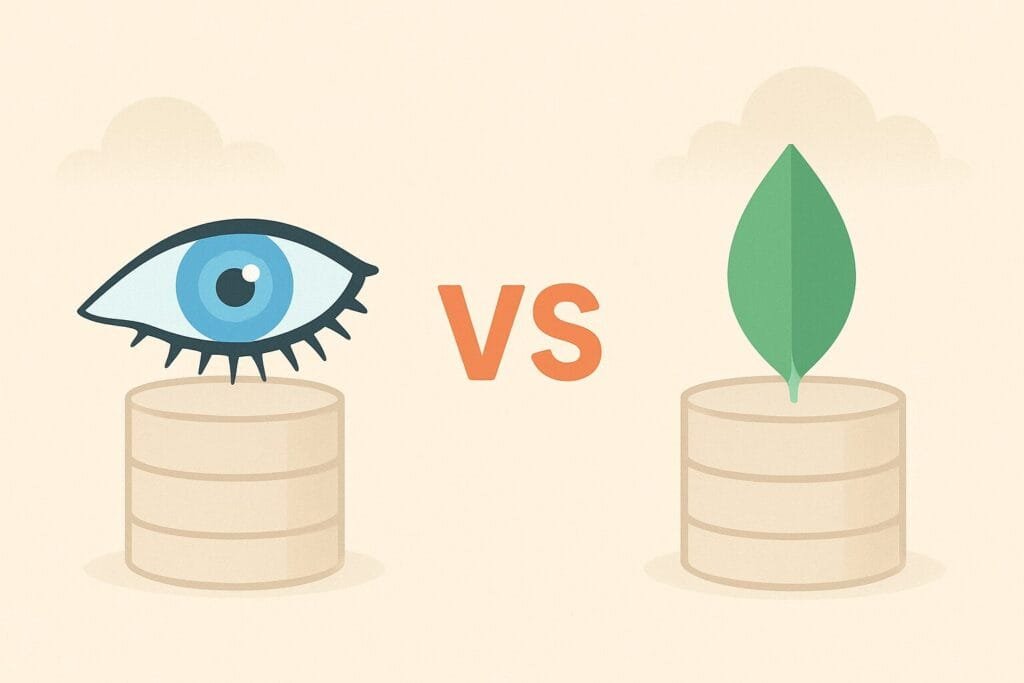Cassandra vs MongoDB: Which Is Best for Big Data? This is a question that developers, data engineers, and business owners often ask when deciding on a NoSQL database. Both Apache Cassandra and MongoDB are widely used for handling massive datasets, but each has unique strengths, weaknesses, and ideal use cases. In this article, we will explore their differences in terms of architecture, scalability, performance, and ecosystem to help you make the right choice.

What Is Cassandra?
Apache Cassandra is a highly scalable, distributed NoSQL database designed to handle huge amounts of data across multiple servers without a single point of failure. Originally developed at Facebook and later open-sourced by the Apache Software Foundation, Cassandra excels in scenarios that require high availability and linear scalability. It is often used by organizations like Netflix, Apple, and Uber to manage mission-critical applications.
What Is MongoDB?
MongoDB is a popular document-oriented NoSQL database that stores data in a flexible, JSON-like format called BSON. Known for its developer-friendly query language and ease of integration, MongoDB is widely adopted in modern web and mobile applications. Companies like eBay, Adobe, and Lyft rely on MongoDB for managing semi-structured and unstructured data. It also provides advanced features such as Atlas (a fully managed cloud database service).
Key Differences Between Cassandra and MongoDB
While both databases fall under the NoSQL category, they serve different needs. Here’s a detailed comparison table:
| Feature | Cassandra | MongoDB |
|---|---|---|
| Data Model | Wide-column store | Document-oriented (BSON/JSON) |
| Query Language | CQL (Cassandra Query Language) | MongoDB Query Language (MQL) |
| Scalability | Excellent for horizontal scaling with linear performance | Scales well, but performance may decrease with very large clusters |
| Performance | Best for high write throughput and sequential data | Optimized for flexible queries and reads |
| High Availability | Masterless architecture ensures no single point of failure | Replica sets with a primary node; failover possible but with short downtime |
| Use Cases | IoT data, time-series data, real-time analytics | Content management, product catalogs, mobile/web apps |
| Community & Ecosystem | Strong in enterprises managing huge data pipelines | Wider adoption with developer-friendly ecosystem |
When to Use Cassandra
Cassandra shines in scenarios where write performance, availability, and fault tolerance are critical. For example, Internet of Things (IoT) applications, time-series analytics, and real-time monitoring systems benefit from Cassandra’s ability to manage massive, continuous streams of data with low latency.
When to Use MongoDB
MongoDB is an excellent choice when flexibility and ease of development are priorities. If you are building content-driven applications, e-commerce platforms, or real-time personalization engines, MongoDB’s document model makes it easy to evolve schemas without downtime.
Advantages and Disadvantages
Cassandra Pros:
- Linear scalability across multiple data centers
- High availability with no single point of failure
- Optimized for massive write throughput
Cassandra Cons:
- Complex to learn and manage for small teams
- Not as flexible for ad-hoc queries
MongoDB Pros:
- Flexible schema with JSON-like documents
- Rich ecosystem and tools like MongoDB Atlas
- Easy integration with modern programming languages
MongoDB Cons:
- Less optimal for extreme write-heavy workloads
- Primary node dependency can cause brief downtime during failover
Cassandra vs MongoDB: Which Should You Choose?
The decision depends on your business requirements:
- Choose Cassandra if you need a distributed system with fault tolerance, high write throughput, and large-scale analytics.
- Choose MongoDB if your priority is flexibility, ease of use, and strong support for dynamic, evolving data structures.
Conclusion
Both Cassandra and MongoDB are excellent NoSQL databases, but their strengths lie in different areas. Cassandra is the best choice for businesses managing large-scale, high-velocity data, while MongoDB works well for dynamic applications requiring schema flexibility and fast queries. Understanding your workload, scalability needs, and development resources will help you make the right decision.
For more detailed technical documentation, you can visit the official Apache Cassandra website to explore advanced features and use cases.

